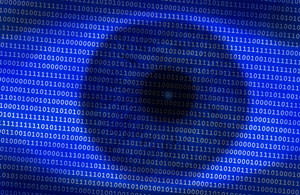Defining the NSA’s Role
President Obama's anticipated reform of the National Security Agency's practices needs to go beyond ending the mass surveillance of innocent Americans' phone calls. He should force the agency to think less about the quantity of information it gathers and more about the quality.
President Obama’s anticipated reform of the National Security Agency’s practices needs to go beyond ending the mass surveillance of innocent Americans’ phone calls. He should force the agency to think less about the quantity of information it gathers and more about the quality.
Obama should ignore the choir of apologists singing in lamentation over the beastly way the NSA is being treated. I refer to voices such as that of Rep. Peter King, R-N.Y., who on Monday accused Sen. Rand Paul, R-Ky. — and, by extension, all the agency’s critics — of “trying to create this paranoia among Americans that the NSA is spying on everyone.”
In fact, the NSA is spying on everyone by keeping a detailed log of our private phone calls. This practice was sanctioned by secret court rulings that stretched the words of the Constitution and the Patriot Act beyond recognition. We couldn’t challenge these rulings because we weren’t allowed to know about them. When asked last March whether any such blanket domestic surveillance was taking place, Director of National Intelligence James Clapper lied to Congress and said no. In what universe is it “paranoia” to be angry about all of this?
King and the rest of the NSA chorus blame whistleblower Edward Snowden for getting the agency in trouble over the phone surveillance and other rogue practices, such as eavesdropping on the cellphone conversations of German Chancellor Angela Merkel and secretly tapping into the data streams of major Internet providers. But Snowden just revealed these abuses. It was the NSA that committed them — and brought this world of hurt on itself.
The Review Group on Intelligence and Communications Technologies — one of two blue-ribbon panels Obama appointed to examine the NSA mess — recommended that the agency stop compiling its comprehensive log of domestic phone calls. This information should be kept by the phone companies or some third party, the review group said, and the government should have to obtain warrants to search it.
Obama should go further and ask why the agency needs to assemble all that information in the first place. I don’t think there’s a good answer.
The review group found that the phone call data “was not essential to preventing attacks.” One member of the panel, former CIA Deputy Director Michael Morell, subsequently said that he thought the phone-data program “would likely have prevented” the 9/11 attacks, but he did not offer evidence to back up this assertion.
U.S. District Judge Richard Leon ruled last month that the collection of phone data was likely unconstitutional. Two weeks later, however, U.S. District Judge William Pauley ruled in a separate case that the program was legal. Pauley went so far as to detail how he believed the phone data could have allowed authorities to prevent 9/11 — essentially, by revealing that one of the hijackers, Khalid al-Mihdhar, was in the United States.
But Lawrence Wright, author of “The Looming Tower,” a highly acclaimed book about the 9/11 attacks, argues in The New Yorker that Pauley’s reasoning is flawed. Mihdhar was already on the CIA’s roster of al-Qaeda suspects. The CIA knew that he had a U.S. visa and that his friend and traveling companion, another hijacker named Nawaf al-Hamzi, was in the United States.
The problem was that the CIA didn’t pass along this information to the FBI, which conducts domestic terrorism investigations. An existing — and entirely appropriate — court order allowed the FBI to conduct basically whatever kind of surveillance it wanted on known or suspected al-Qaeda members. But the bureau wasn’t told that Mihdhar was in the country.
This story illustrates what I think is the big problem with the NSA’s vacuum-cleaner method of gathering intelligence. Assembling massive amounts of data may create the illusion of total awareness, but it doesn’t tell you who the terrorists are or what they might be up to.
In every example of thwarted attacks cited by NSA apologists, analysts searched the data for previously identified individuals or phone numbers. So why on earth does the agency need to store my phone records, and yours, when it can quickly obtain a court order instructing the phone companies to turn over information about communications involving known or suspected terrorists?
Collecting and storing unbelievable amounts of useless information is easy. Machines do all the work. Analyzing and sharing the right tidbits of pertinent information is hard, but that’s the best way to prevent future attacks — and that’s what Obama should tell the NSA to do.
Eugene Robinson’s e-mail address is eugenerobinson(at)washpost.com.
© 2014, Washington Post Writers Group
Your support matters…Independent journalism is under threat and overshadowed by heavily funded mainstream media.
You can help level the playing field. Become a member.
Your tax-deductible contribution keeps us digging beneath the headlines to give you thought-provoking, investigative reporting and analysis that unearths what's really happening- without compromise.
Give today to support our courageous, independent journalists.









You need to be a supporter to comment.
There are currently no responses to this article.
Be the first to respond.